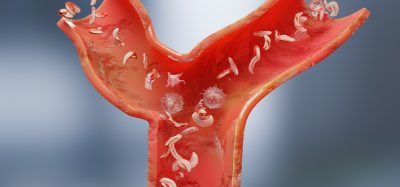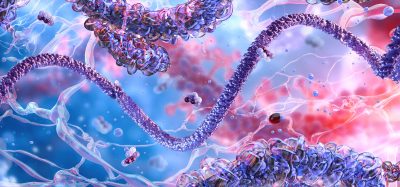Genetic analysis of SARS-CoV-2 reveals one vaccine could combat all infections
Posted: 2 September 2020 | Victoria Rees (Drug Target Review) | No comments yet
A genetic analysis of SARS-CoV-2 sequences reveal the virus has mutated minimally since December 2019, suggesting only one vaccine is needed to combat COVID-19.


Researchers have conducted genetic analysis of sequences from more than 27,000 individuals infected with the coronavirus that causes COVID-19. They report that their findings reveal the virus has mutated minimally since December 2019, suggesting one vaccine would be sufficient to combat global infections.
The study was conducted by a team of scientists from the Walter Reed Army Institute of Research (WRAIR), US, led by Morgane Rolland and Dr Kayvon Modjarrad.
To characterise SARS-CoV-2 coronavirus diversification since the beginning of the pandemic the researchers aligned 18,514 independent virus genome sequences sampled from individuals in 84 countries and scanned them for variations. Analyses revealed low estimates of genetic differentiation following the initial outbreak and indicate that, so far, the SARS-CoV-2 genome has evolved through a mostly random process rather than through adaptation to the human hosts it encounters.
Biomarkers aren’t just supporting drug discovery – they’re driving it
FREE market report
From smarter trials to faster insights, this report unpacks the science, strategy and real-world impact behind the next generation of precision therapies.
What you’ll unlock:
- How biomarkers are guiding dose selection and early efficacy decisions in complex trials
- Why multi-omics, liquid biopsy and digital tools are redefining the discovery process
- What makes lab data regulatory-ready and why alignment matters from day one
Explore how biomarkers are shaping early drug development
Access the full report – it’s free!
“Like other reports, we noticed that the D614G mutation in the Spike (S) protein has rapidly increased in frequency since the beginning of the epidemic, but we could not link this mutation to specific adaptive forces,” said Rolland. “When viruses replicate and spread in the population, we expect to see some mutations and some can become fixed very rapidly in an epidemic just by random chance.”
Rolland noted that linking genotypes to phenotypes is complicated and more research is needed to fully understand the functional consequences of the D614G mutation in SARS-CoV-2.
The team suggest that given the low level of genetic variation, a promising vaccine candidate would likely be equally efficacious against all currently circulating strains of the COVID-19 coronavirus.
“Viral diversity has challenged vaccine development efforts for other viruses such as HIV, influenza and dengue, but global samples show SARS-CoV-2 to be less diverse than these viruses,” said Rolland. “We can therefore be cautiously optimistic that viral diversity should not be an obstacle for the development of a broadly protective vaccine against COVID-19 infection.”
Modjarrad co-leads the institute’s COVID-19 response efforts, including the development of a vaccine against COVID-19. WRAIR’s leading vaccine candidate is built on an S ferritin nanoparticle platform and is expected to enter human testing before 2021. The vaccine is paired with a proprietary adjuvant that was also developed at WRAIR, the Army Liposome Formulation, to further boost the immune response.
“Scientists are working hard to accelerate the development of a COVID-19 vaccine that is safe and effective for the entire world, now and in the years to come. These data are critical to informing the field’s collective efforts in getting a vaccine that is rapidly scalable and universally applicable to all populations,” said Modjarrad.
The results were published in Proceedings of the National Academy of Sciences.
Related topics
Disease Research, Drug Targets, Genetic Analysis, Genomics, Vaccine
Related conditions
Covid-19
Related organisations
Walter Reed Army Institute of Research (WRAIR)
Related people
Dr Kayvon Modjarrad, Morgane Rolland








